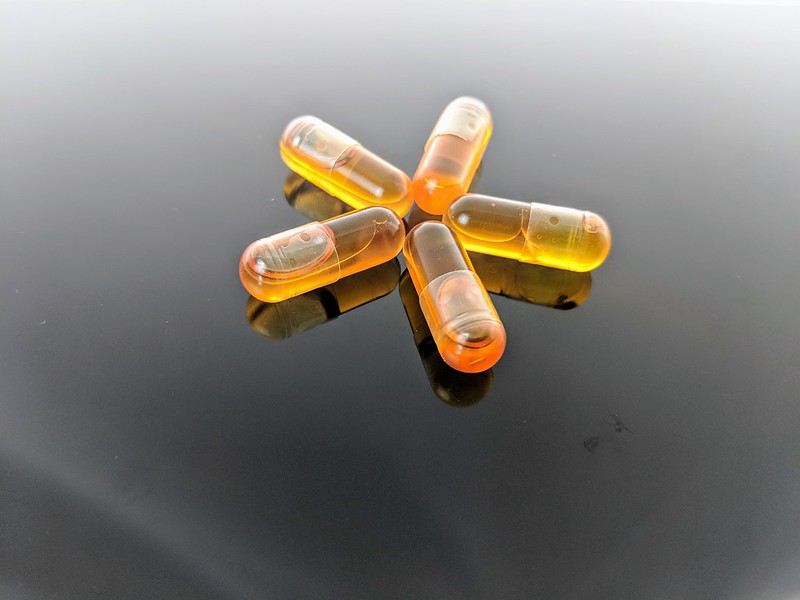Why Taking Supplements May Be Harmful

Published: July 26, 2023

The supplement industry is booming, with its worth in the United States climbing up to a staggering $39.4 billion in 2022.1 Approximately 75% of Americans report taking dietary supplements, ranging from essential vitamins and minerals to herbal supplements.2 But are these products truly enhancing our health, or could they be doing more harm than good?
As our lives become busier and our desire for quick fixes increases, the supplement industry has capitalized on consumers’ desire for better health. While there are quality supplements on the market that can benefit health, not all supplements are created equal, and some could even be dangerous. In this blog post, we will explore the potential harms of supplements, the importance of testing for nutrient deficiencies, and the benefits of working with a doctor or dietitian to optimize your health.
The Dangers Lurking in Your Supplements
While proper nutrition is essential for good health, some supplements can cause harm, particularly when consumed excessively or in combination with certain medications or health conditions. Here are some potential dangers associated with supplementation:
- Overdosing or Toxicity: Exceeding the recommended daily allowance (RDA) of certain vitamins and minerals can lead to toxicity, causing dangerous side effects or even life-threatening symptoms.3
- Interactions with Medications: Some supplements can alter the absorption, metabolism, or excretion of prescription drugs, reducing their effectiveness or increasing their risk of adverse effects. If you have a health condition that requires medication, always check with your doctor or dietitian before beginning a supplement routine.4
- Adulterated Products: A significant number of dietary supplements have been found to contain undeclared contaminants, including prescription drugs, heavy metals, molds, or other potentially harmful substances.5
- Lack of Regulation: Although the U.S. Food and Drug Administration (FDA) oversees supplement manufacturing, it does not require these products to be proven safe or effective before they are sold to consumers.6
Know Your Nutrients: The Importance of Testing for Deficiencies
Rather than blindly reaching for supplements, it’s crucial to understand your body’s unique nutrient needs. Discussing your concerns and symptoms with a healthcare professional could help identify underlying nutrient deficiencies or imbalances. Testing for these deficiencies can provide valuable insights into what your body truly needs, allowing you to make educated decisions about supplementation.
Discuss your test results with a registered dietitian or a doctor, who can help you create a tailored nutrition plan to address deficiencies or imbalances. For example, a blood test showing an iron deficiency may prompt a recommendation for iron supplementation alongside dietary changes to boost iron intake.

Personalized Nutrition: Working with a Doctor or Dietitian
Partnering with a healthcare professional can help you understand your unique nutritional needs and work towards better health through targeted diet and supplement recommendations from quality sources.
A great way to do this is by participating in Kyla’s Longevity program! Our expert team, including a registered dietitian, provides comprehensive support on your journey to living a long, healthy life. Discover your personalized nutrition and wellness plan tailor-made for you today!
References
- Vitamin & Supplement Manufacturing in the US – market size. Ibisworld.com. Accessed June 12, 2023. https://www.ibisworld.com/industry-statistics/market-size/vitamin-supplement-manufacturing-united-states/
- CRN reveals survey data from 2022 Consumer Survey on Dietary Supplements. Crnusa.org. Accessed June 12, 2023. https://www.crnusa.org/newsroom/crn-reveals-survey-data-2022-consumer-survey-dietary-supplements
- Vitamin and mineral supplement fact sheets. Nih.gov. Accessed June 12, 2023. https://ods.od.nih.gov/factsheets/list-VitaminsMinerals/
- Asher GN, Corbett AH, Hawke RL. Common herbal dietary supplement-drug interactions. Am Fam Physician. 2017;96(2):101-107. Accessed June 12, 2023. https://www.aafp.org/pubs/afp/issues/2017/0715/p101.html
- Costa JG, Vidovic B, Saraiva N, et al. Contaminants: a dark side of food supplements? Free Radic Res. 2019;53(sup1):1113-1135. doi:10.1080/10715762.2019.1636045
- FDA 101: Dietary supplements. U.S. Food and Drug Administration. Accessed June 12, 2023. https://www.fda.gov/consumers/consumer-updates/fda-101-dietary-supplements